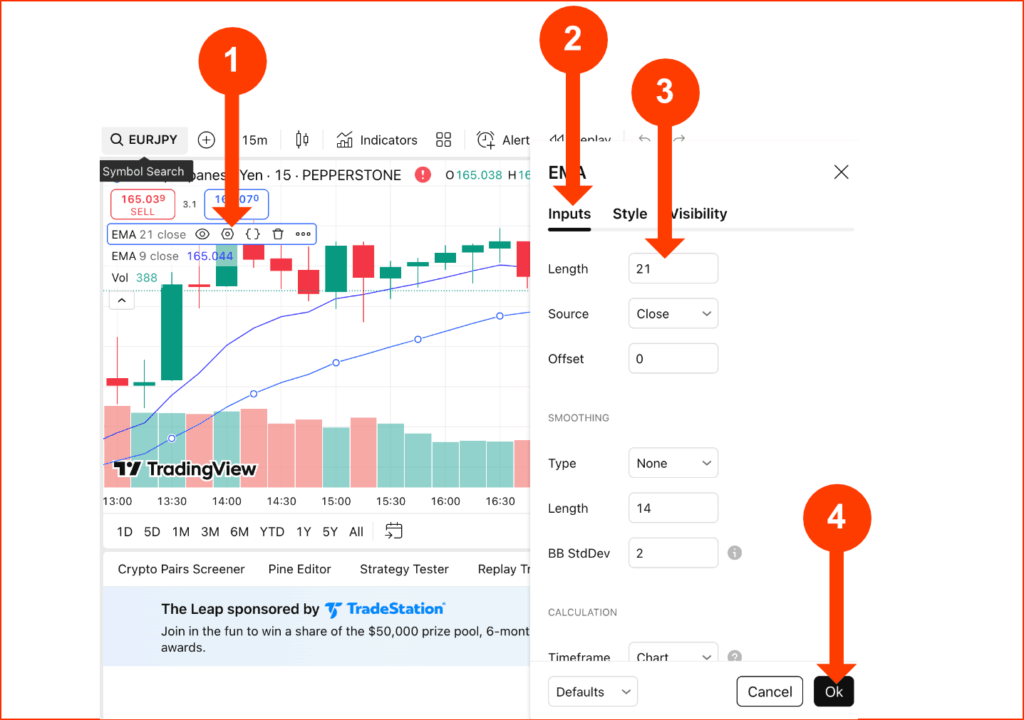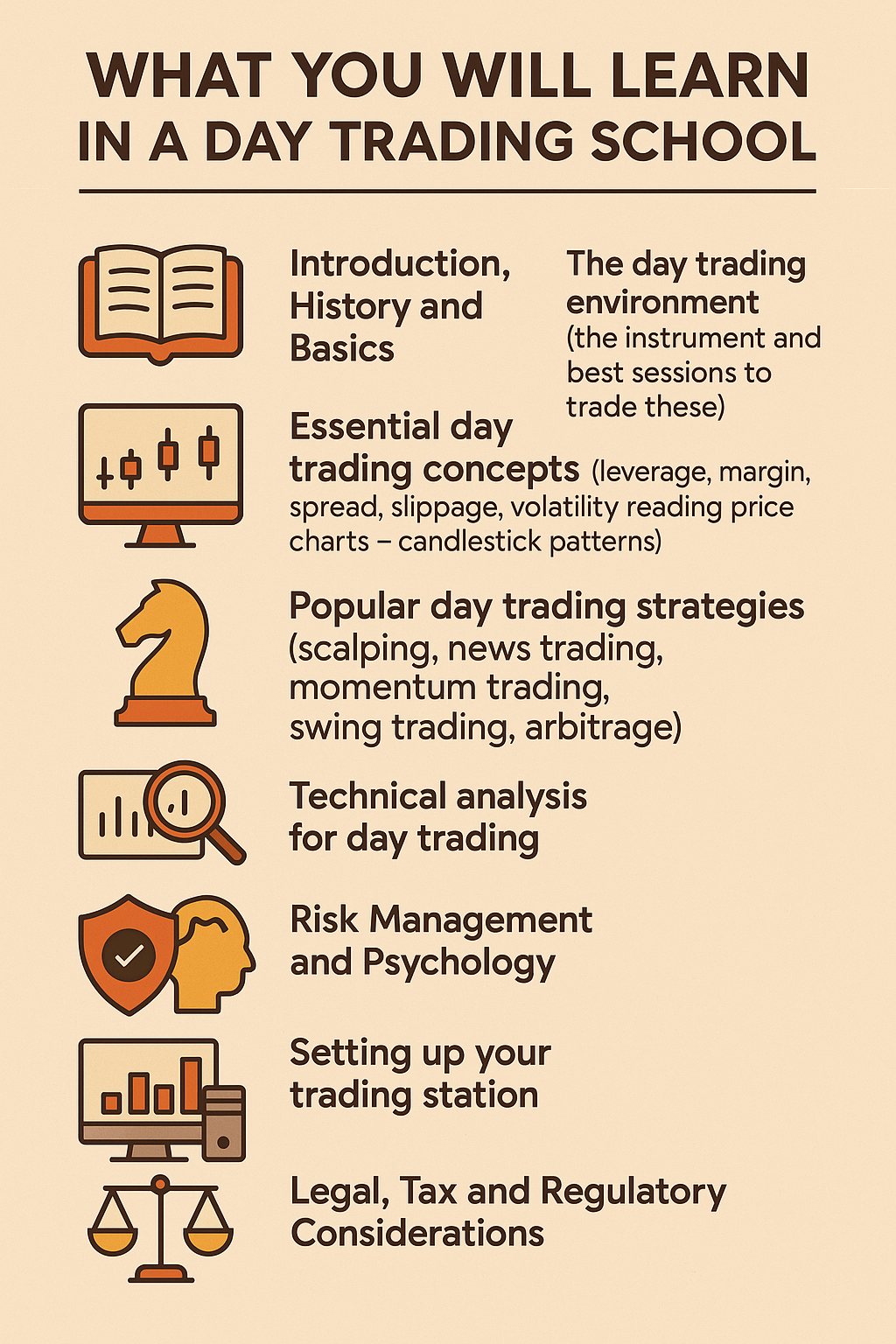
For new forex traders, the best forex account type of beginners is the Standard Account. This account type is simple, affordable, and beginner-friendly.
Why the standard account type is the best for beginners:
Easy to Understand: The standard account is basic and easy to understand unlike ECN (Electronic Communication Network) or Raw Spread accounts which charge commissions. A Standard Account only includes the spread (which is basically the difference between bid/ask prices. This account type has no confusing fee structures.
Low or No Minimum Deposit: Brokers like Pepperstone and IC Markets allow you to start with as little as $100 or less. These account types make forex trading accessible even to retail traders with low capital.
Flexible Trading: The standard account type works well for both short-term and swing trading strategies, especially when paired with platforms like TradingView’s powerful charting tools (supported by both brokers).
Pro Tip:
Before funding a live account and trading with real money, as a beginner you should practice on a Demo Account (virtual or paper money). Pepperstone, TradingView and IC Markets offer unlimited demo accounts with real market conditions. This is perfect for building and testing your forex trading strategies risk-free.
Forex Account Types to Avoid As a Beginner
- ECN/Raw Spread Accounts: These require experience due to variable spreads + commissions.
- Micro Accounts: These can be too restrictive for long-term growth.
- High-Leverage Accounts: Carry high risk and can lead to quick losses if misused.
What is the Best forex Trading Account
A forex trading account holds the funds of the trader. Most importantly the account enables the trader to conduct trade through buying and selling currency pairs.
A forex trading account is used to hold as well as to trade foreign currencies. The basic explanation of a trading account is that this is where you deposit your money and then get to buy and sell with it. Profit in forex business is derived from fluctuations in currency values.
The basic idea behind forex trading is to match up currencies that are appreciating in value against the ones decreasing in value. In this kind of trade, the trader can buy or sell a currency pair up until the rise or fall of that particular currency pair is over.
As a potential trader, what you need to understand is that opening a forex trading account is not very different from opening a bank account. One of the most standard features of a forex trading account is what is known as leverage. This pertains to conducting trades on the open forex market working with just a percentage of the actual trade amount.
Here is an example of leverage; say your forex trading account functions on a 50:1 leverage, if you wanted to purchase about 10,000 worth of a currency you can do so with just 200 units of currency.
One of the great advantages of leverage is that as a trader you can conduct very large trades which are larger than the total worth of your account trading balance. The obvious downside to this is that similarly, the trader has an equal loss potential. The trader can therefore lose a lot of money similarly in this kind of trade.
Where Should You Open Your Trading Account?
This is one of those niggling questions especially for those that are new to the forex fray. It is important that we highlight some of the key checks for identifying the right broker for a forex trading account.
Before you can plunge to open the forex trading account there are various considerations to be made so that you can make a well-informed choice. The world of forex has so much to offer and as a new trader you may find it such a daunting task to identify the brokerage service that can meet your needs.
Low Spreads
If you have a low budget to start with, you need to consider brokerages with low spreads. Spread in a forex trading account refers to the difference between the price at which a currency is bought and the price at which it can be sold.
As you explore the aspect of spreads you will note that spreads vary in forex as much as commissions vary in stock trade.
Brokerage Credibility
The other key aspect to watch out for is the credibility of the brokerage. Is the brokerage legally registered with the Futures Commissions Merchant (FCM)? Also, is it compliant with the Commodity Futures Trading Commission (CFTC)?
Traders can verify the credentials of the brokerages they want to sign up with to ascertain these requirements. The bottom-line is to work with legit forex companies.
Reportage and Analyses
Key to success in forex trade is access to all the tools and resources that help you to achieve your trading goal. Different brokerages offer various trading platforms to their clients.
The primary role of a trading platform is to facilitate trade activity as well as furnishing traders with everything they need to make wise mathematical decisions.
Traders need to identify brokerages offering platform comprehensive charts and real time technical analysis tools. Traders must also check if the platform provides real time news and data as well as satisfactory customer service.
Which Forex Pair is Best to Trade for Beginners?
For beginners, the EUR/USD pair is generally considered the best forex pair to trade. It offers high liquidity, predictable trends, and low spreads, which makes it easier to understand market movements and manage risk.
Other beginner-friendly pairs include GBP/USD and USD/JPY, as they also have strong daily volumes and are heavily analysed. Most brokers, including Pepperstone and IC Markets, offer excellent execution on these major pairs, making them accessible to new traders.
What Type of Bank Account is Best for Forex Trading?
When considering what type of bank account is best for forex trading you need to consider a digital-friendly, low-fee account that supports international transfers.
An account that allows depositing and withdrawal of funds using standard payment protocols (visa/MasterCard cards, etc). The bank account must also allow fast online banking, minimal conversion charges, and compatibility with payment platforms like PayPal or Skrill can make funding and withdrawing more seamless.
Some brokers like FP Markets and AvaTrade even offer local funding options in select regions, helping traders avoid cross-border charges and delays.
FAQs
Which account is best for beginners in forex?
A standard account with low spreads and no commissions is ideal for beginners. It allows you to trade with manageable costs while learning. Brokers like Pepperstone and IC Markets offer beginner-friendly account types with demo options.
Best forex broker for a big account?
For large accounts, look for brokers with deep liquidity, tight spreads, and priority customer support. Pepperstone, IC Markets, and FP Markets are solid choices for high-volume traders due to their institutional-grade infrastructure and execution speed.
What type of forex trading is best for beginners?
Spot trading in major currency pairs like EUR/USD or USD/JPY is best for beginners. These pairs are less volatile and more liquid. Use platforms with built-in tools like TradingView to learn technical setups and monitor the markets in real-time.
Final Thoughts
The key on this aspect is to get a broker that offers everything you need to achieve your set goals as a trader. As we have also explored the aspect of leverage, traders need to check if the broker is offering a wide range of leverage options.
Wide range leverage options are a good model for traders with limited capital. A thoughtful consideration of all these aspects will help you get the right broker with all you need to trade fruitfully.
The underlying principle is to get a good broker all-round — the one with all the support instruments you need to succeed. Opening multiple trading accounts is another great way of testing the waters and getting a grip of how forex trade goes about.
Elias Stroud is a professional forex trader and market analyst with over eight years of experience. His journey began with the common misconception that trading was a get-rich-quick scheme, a path that led to significant early losses. It was this initial failure that forced a pivot towards disciplined, long-term learning and strategy development.
Today, Elias specializes in price action analysis, focusing on identifying high-probability setups without relying on complex indicators. He has cultivated a premium-level trading account, a direct result of his commitment to a structured and professional approach to the markets. Elias is passionate about sharing the actionable insights and foundational principles that helped him transform from a novice to a consistently profitable trader.
For further verification of his professional standing and live trading credentials, please visit the “About Us” page where account confirmation screenshots are provided, along with links to his trusted broker, Pepperstone, and his primary charting platform, TradingView.


